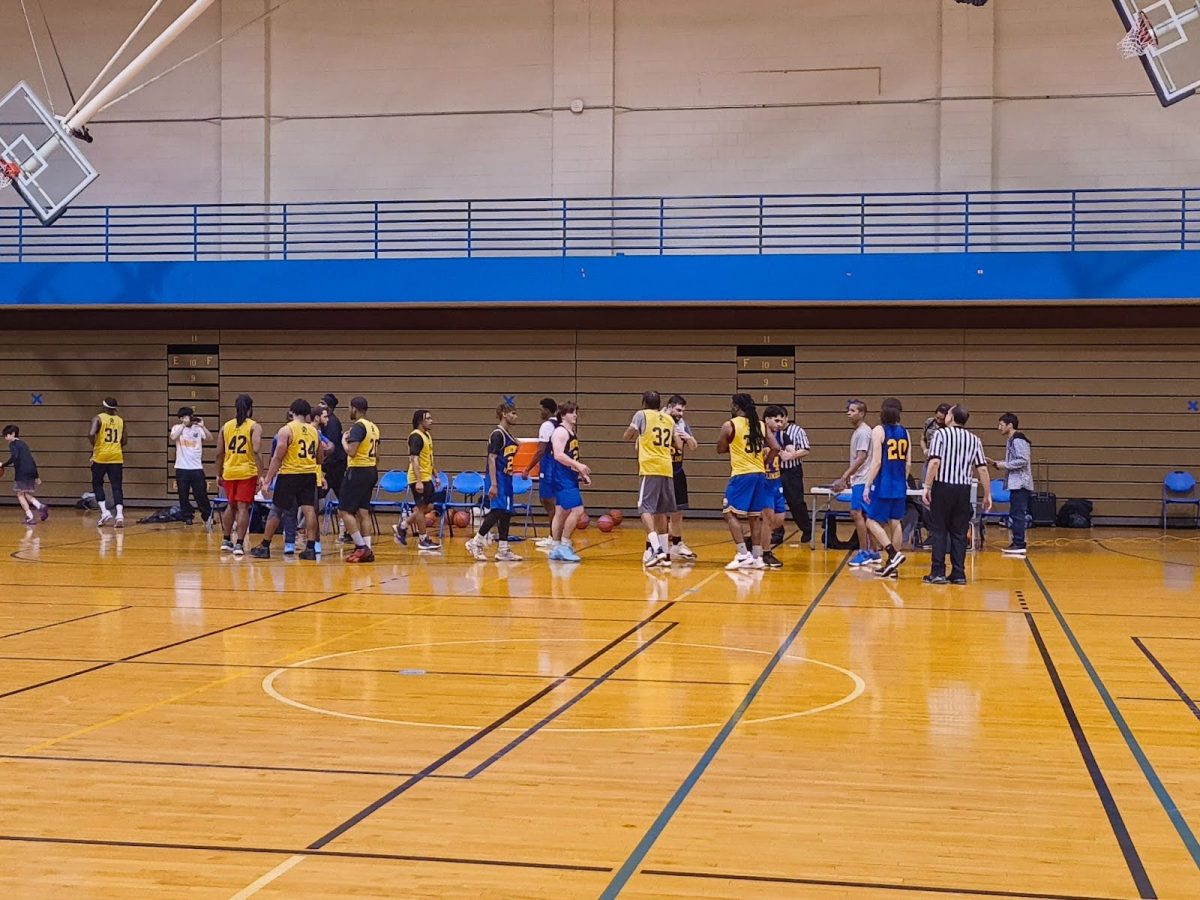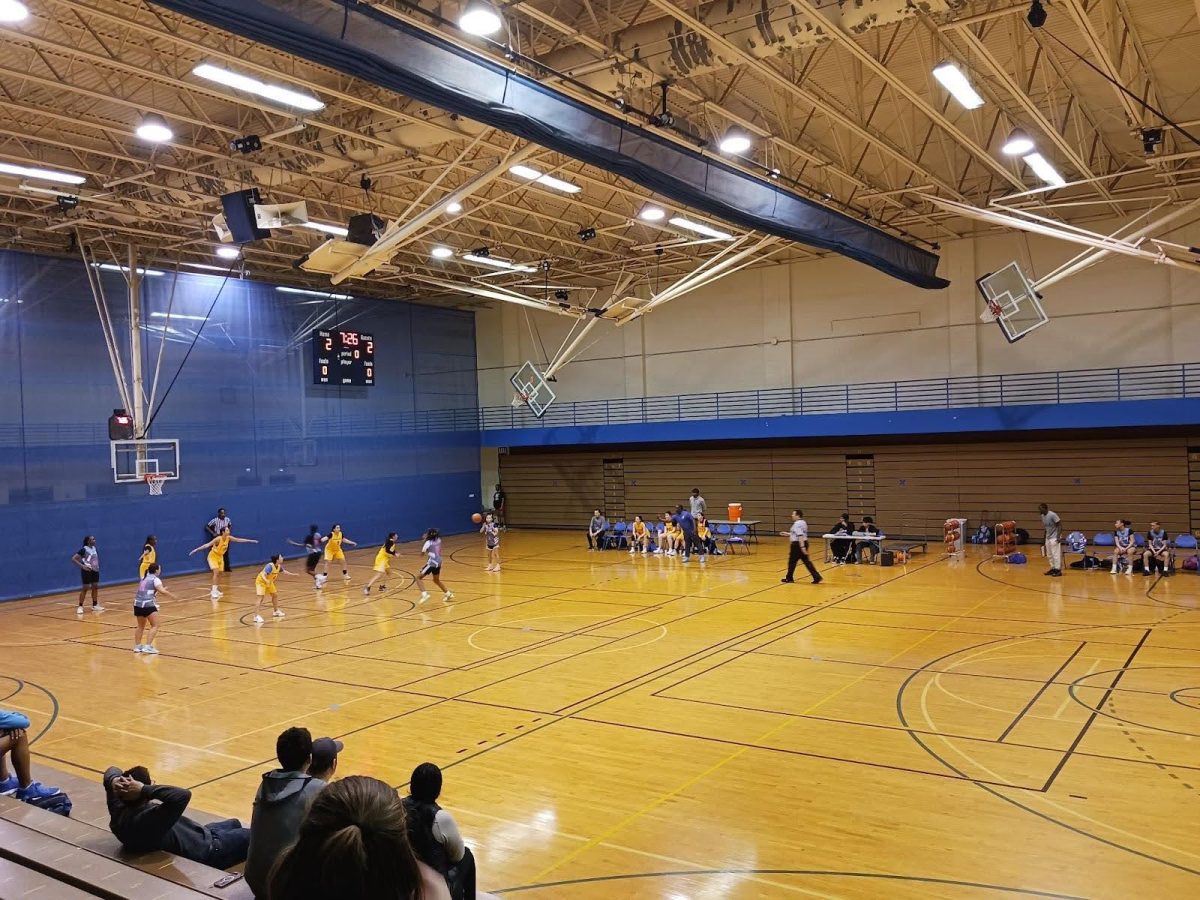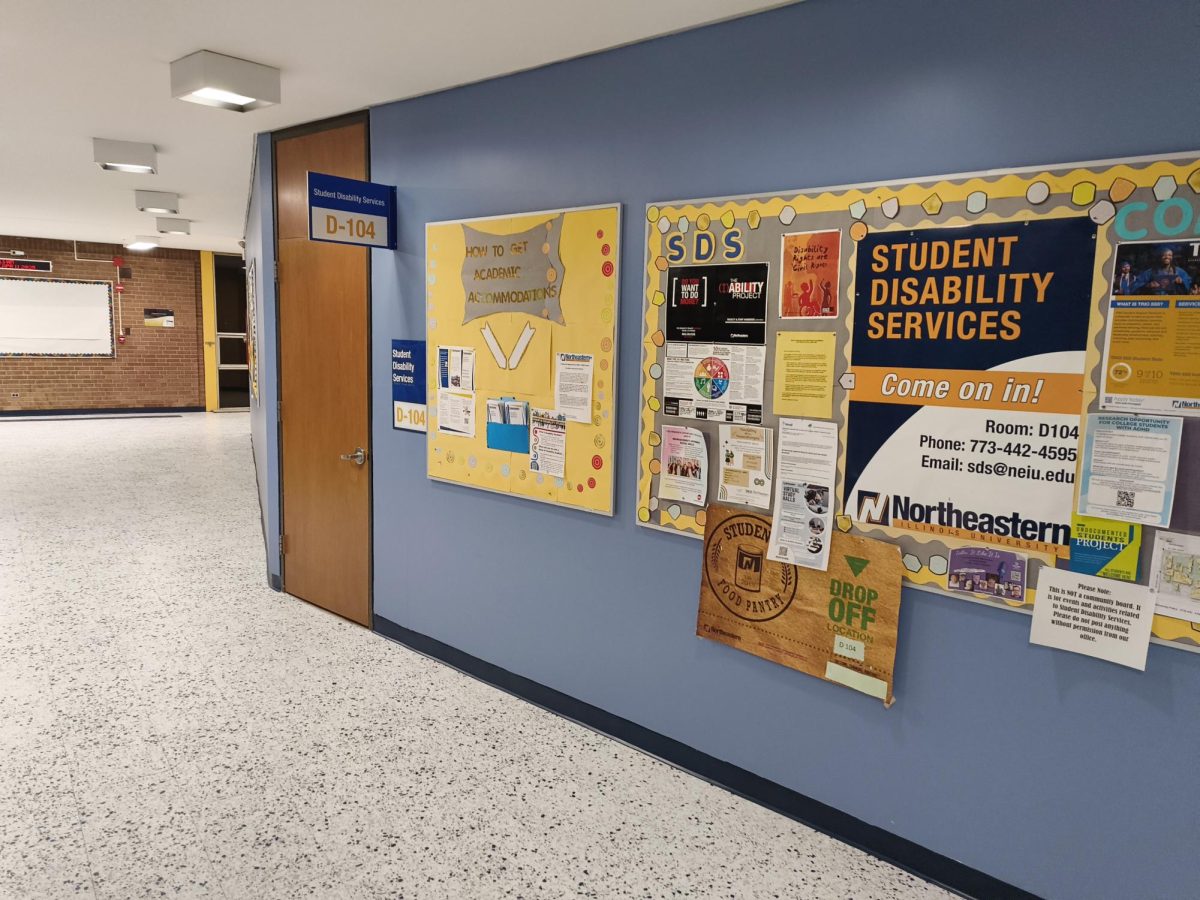Students could potentially be at risk anytime food is mishandled at home, in the cafeteria or during campus events. The latter two are often the least likely to happen when ServSafe trainings have been completed by staff members. Furthermore, the local Cook County Health Department does surprise spot checks at NEIU’s food service operations just like at restaurants to ensure the safe preparation and distribution of food.
NEIU’s Cafeteria and Food Safety Measures
The Independent interviewed Cesar Amador, NEIU Cafeteria’s Store Manager, who provided insight into how the cafeteria maintains food safety, “I work in the kitchen, always making everything is [safe],” Amador said. He ensured that he had all the necessary preparations to ensure food safety.
Taking frequent temperatures of the hot and cold foods is one way to ensure food safety, “We always try to [keep] everything cold,” Amador said. “I got the thermometers taking the temperatures all the time—when I started, in the middle of the day and when I finish.”
Another way that Amador ensures food safety in the cafeteria is to use different cutting boards and knives while using gloves, “Every time I touch any raw meat or any cooked meat, we have to change gloves and wash our hands all the time,” Amador said. “We have our gloves and change it every five minutes [or] ten minutes; [it] depends on how we use it.”
Amador and his kitchen staffers always store raw meat, cooked meat and vegetables in different sections of the coolers. All three categories of food must remain in their designated spots to avoid cross-contamination,“Because we have the raw food; we have vegetables; we have to change [gloves] every time because it’s going to be cross-contamination,” Amador said.
“We don’t serve in the dining rooms,” Amador said. He elaborated by saying the kitchen staffers prepare and sell ready-to-eat meals in containers and boxes. When one customer asks for fish, and another customer asks for chicken, the two types of food remain in their designated preparation locations. This practice prevents cross-contamination.
All types of food must be properly stored, cooked at specific minimum temperatures and handled with care to ensure that it is safe to eat and free of bacterial contamination. The main reason for keeping the food in separate locations is that “they have a lot of bacteria; [they’re] coming from different things especially when working with a fish or chicken and pork,” Amador said. “So we have to try everything [to] separate [it] from the stuff—all the utensils, all the cutting tables; they have a color for raw meat, for food meat, fish and veggies.” In other words, each cutting board is color-coded to separate each category of food and prevent cross-contamination.
Sanitation and Hygiene Practices in NEIU’s Cafeteria
According to Amador, hairnets are mandatory and must always be worn when working in the cafeteria’s kitchen regardless of the staffer’s length of hair.
Regarding sanitization in the cafeteria’s kitchen, the staffers always prepare designated buckets with a solution of detergent and disinfectant or sanitizer to wipe down the food preparation surfaces in between food preparations. The detergent is hot, soapy water, and the disinfectant/sanitizer is quaternary ammonium (quat), “The rags to clean it up always we have to make a bucket with a sanitation and one with a soap,” Amador said. “We have to clean it up faster because that’s the way we can prevent the contamination.” Following these procedures ensures food safety in NEIU’s cafeteria. The kitchen staffers take all of these precautions to keep the food, workspaces and utensils clean and safe for customers.
Expert Advice on Preventing FBI
The Independent also interviewed Kim Tasigchana, Family Nurse Practitioner, about the importance of food safety, hygiene, necessary precautions and prevention tactics of foodborne illnesses (FBI). Tasigchana also shared mitigation techniques and actions that students can do when an FBI is suspected at home.
Tips for hygienic food preparation include “not to leave meat out on the countertops,” Tasigchana said. “Make sure if you’re cutting [on the countertops,] you should clean it really well with either antimicrobial soap, hot water or bleach; let it sit; and then it should kill [the bacteria] off.”
Keeping hot foods hot and cold foods cold is imperative; otherwise,food may enter the danger zone where bacterial growth proliferates faster. For example, “[students] shouldn’t leave dairy products out for long periods of time,” Tasigchana said.
Several bacteria that cause FBI are salmonella, E. coli, Listeria, Clostridium perfringens, Campylobacter, Staphylococcus aureus, Bacillus cereus, Vibrio parahaemolyticus and Vibrio vulnificus. Each one is associated with a different type of food, and most of them are associated with animal products. “Some people like raw meat, and that itself is a risk to take.”
Recognizing Spoiled Food Before It’s Too Late
Techniques to figure out that food is spoiled or rotten at home include common sense, such as using the body’s senses to detect abnormalities. One should smell it for odors, visually search for irregularities and feel the texture of the food for aberrations, “I feel like that’s one of the things that deters us from eating something [foul],” Tasigchana said. If these three senses don’t detect disturbances in the food, then it is worth taste testing a ‘small amount’ to see if the food is in good standing and not spoiled.
What to Do If You Suspect a FBI
NEIU’s Student Health Services (SHS) is limited when it comes down to handling the severity of FBIs. When students suspect a FBI, “they’ll just go to the ER if anything because if they’re having nausea and vomiting,” Tasigchana said. “Really it’s all symptomatic treatment; like there isn’t a pill that would help get rid of it.” In other words, the signs and symptoms get treated, and not necessarily the underlying cause of sickness.
Once the FBI occurs, “It’s better to vomit it out, than to keep it in because that’s the way your body’s getting rid of it,” Tasigchana said. GI distress and symptoms include nausea, vomiting, diarrhea and stomach pain, “It’s usually within the first 24 hours of eating something that’s bad, and they will have those symptoms.”
“Food poisoning—usually it’s all symptomatic; you just need to stay calm, push fluids, electrolytes, [and] Pepto-Bismol,” Tasigchana said. According to Virginia’s Commonwealth University’s SHS, Pepto-Bismol (bismuth subsalicylate) “decreases the flow of fluids and electrolytes into the intestines.” The clinic has some stashed just in case.
For those that can stay home, they can use ibuprofen or Tylenol. Tasigchana said, “Primarily maybe Tylenol because ibuprofen can sometimes make you have a stomach upset.”
Health Department Regulations and Inspections
“The Department of Health has strict regulations for the kitchen here to adhere to,” Tasigchana said. Some things they look for is hair being tied up, wearing hairnets, washing hands frequently with antibacterial soap and water, wearing gloves when handling meat, and cooking different foods at different temperatures to kill bacteria. Surprise spot checks are typically implemented by the local health department to ensure compliance with safety regulations. “Say 10 people got sick at the same place, then that would have someone come in and evaluate the kitchen.” Tasigchana was referring to health inspectors that go into great detail when checking all parameters of food service in kitchens to prevent even more people from getting sick.
Numerous kitchen staff members, supply chain personnel and health department food inspectors come together to ensure that ingredients and prepared meals are handled safely and hygienically while being stored. All of these parties work diligently to reduce the risk of foodborne illnesses to students, staff and faculty members at NEIU. Food safety extends beyond public eateries, and students must take individual responsibility within their private kitchens in the Nest residences, apartments and houses. Trusting one’s senses to detect food spoilage is the tip of the iceberg for detecting and mitigating potential risks in food safety, and thus, serious health issues can be prevented. Ultimately, staying informed and cautious about FBI is the best way to protect oneself, friends and family from contaminated or spoiled food.










